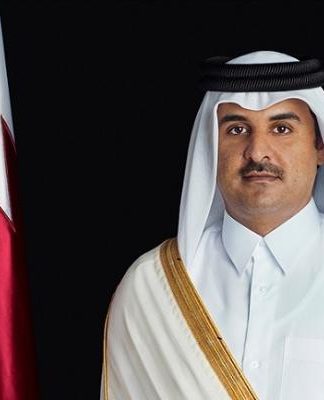RULE OF LAWEUROPE
Rule of law: EU reprimands Poland and Hungary
Bernd Riegert
12 hours ago12 hours ago
The European Commission will withhold funds from Poland and Hungary as punishment for breaches cited in its annual rule of law report this week.
https://p.dw.com/p/4TcnG
EU Commissioners Jourova (left) und Reynders present their 2023 rule of law reort in Brussels
EU Commissioners Jourova (left) und Reynders present their “serious concerns” in BrusselsImage: Lukasz Kobus/EU
European Commissioners Vera Jourova and Didier Reynders took pains not to mention Poland and Hungary too often by name when presenting their annual report on the rule of law on July 5. As the officials responsible for assessing values, transparency and justice of member states, they preferred to speak in general terms about those that are causing concern.
These include other states that are behind schedule with judiciary reforms, such as Spain. Germany also came under fire for its comparatively low pay for judges. By contrast, Luxembourg, Austria and Croatia emerged as positive examples, having implemented European Commission recommendations to improve the independence of their judges.
A man walks in front of Poland’s top court in WarsawA man walks in front of Poland’s top court in Warsaw
Poland’s top court in Warsaw, where the European Commission has doubts about the judiciary’s independenceImage: picture-alliance/ZumaPress/O. Marques
As if to deny Hungarian or Polish leadership of any reason to complain about unfair treatment from Brussels, Reynders stressed that all 27 European Union member states are scrutinized under the same criteria. Both states are currently subject to proceedings under Article 7 of the European treaties for violations of the rule of law, which could theoretically lead to suspension of their EU membership.
Problematic Poland
The European Commission has presented their report on the state of the rule of law in member states every year since 2020. And after reading the fourth report, it remains clear that Poland is the most recalcitrant case, closely followed by Hungary.
In June, the European Court of Justice, or ECJ, the EU’s highest court, ruled that Poland’s 2019 judicial reform was unlawful and should be repealed. The recommendation to separate the office of the attorney general from the office of the minister of justice was not followed. Nor have unjustly dismissed judges been reinstated to their posts.”Serious concerns persist related to the independence of the Polish judiciary,” the report says, a sentiment that runs throughout the document.
Polish Justice Minister Ziobro Polish Justice Minister Ziobro
Polish justice minister Zbigniew Ziobro ought to give up his parallel position as public prosecutor, the EU saysImage: PAP/picture-alliance
The Supreme Court in Poland does not fully recognize judgments by the European Court of Justice, although it would be obliged to do so under the EU treaties. Polish judges who invoke EU law face disciplinary proceedings, which the Commission says is also a clear violation. It has therefore initiated a number of proceedings against Poland, which has already paid €360 million ($395 million) in fines for noncompliance with the rulings of the ECJ since 2021. Some funding Poland is entitled to from the EU’s budget is also being withheld.
Populist posturing
Nevertheless, EU officials do not expect Poland to comply, as the right-wing populist Law and Justice (PiS) government is in campaign mode ahead of September’s parliamentary elections. It portrays Brussels as an enemy to whom no concessions will be made. Polish justice minister Zbigniew Ziobro said in June that the ECJ was assuming powers that it didn’t even have. “The ruling was not written by judges, but by politicians,” said Ziobro, who is chairman of the far-right Sovereign Poland party.
Polish judge Waldemar Zurek speaks at a 2020 protest against judicial reforms by the right-wing government in WarsawPolish judge Waldemar Zurek speaks at a 2020 protest against judicial reforms by the right-wing government in Warsaw
Polish judge Waldemar Zurek speaks at a 2020 protest against judicial reforms by the right-wing government in WarsawImage: Omar Marques/Getty Images
Commission officials are likely hoping for a change of government in Warsaw, which would be the only route to any serious progress, inside sources said.
The Rule of Law Report also criticizes a new law in Poland that allows an administrative commission to exclude disagreeable politicians from elected office. The Commission already initiated proceedings against this law in June, as there are concerns that it could be aimed at silencing Donald Tusk, the opposition leader with the Christian-democratic Civic Platform party, in the current election campaign. Poland’s minister for European affairs Szymon Szynkowski vel Sek has rejected these allegations.
The Rule of Law Report essentially gives the Polish government the same homework as last year. In addition to the judiciary, the media sector is also implicated, with opaque licensing for media companies and a public broadcasting system that is overly dependent on the government.
Warsaw has so far remained unmoved by the financial consequences of its unwillingness to cooperate. The European Commission continues to withhold payments from its €35 billion pandemic recovery plan for the country. Funds will only be disbursed when a number of conditions, including the restoration of judicial independence, have been met.
Improvements out of Hungary
Slightly less problematic, the Hungarian parliament has passed legislation to bring its judiciary up to European standards. “The new rules on the Supreme Court will contribute to the transparency of its functioning and will decrease the possibility of political interference,” the Commission report on the country said. Still, things look bleak when it comes to fighting against corruption and for media independence.
Hungarian Prime Minister Viktor Orban in BrusselsHungarian Prime Minister Viktor Orban in Brussels
Hungarian Prime Minister Viktor Orban doesn’t hold back his criticism of the EU CommissionImage: Olivier Matthys/AP/dpa/picture alliance
The Commission also demanded that serious corruption cases finally be comprehensively prosecuted, investigated and sentenced. As long as prominent prominent political leadership goes unpunished, EU sanctions against Hungary will remain in force. Due to rampant corruption, the country currently receives only about 55% of allocated funds from the EU budget. Money from the pandemic recovery fund is also being withheld. This amounts to around €12 billion that Hungary is missing out on.
Hungarian Prime Minister Viktor Orban is blocking EU decisions in other areas in an attempt to exert pressure. Behind closed doors at the European Commission, there is talk of “attempted blackmail.”
This article originally appeared in German.
Riegert Bernd Kommentarbild AppRiegert Bernd Kommentarbild App
Bernd Riegert Senior European correspondent in Brussels with a focus on people and politics in the European Union






























